Everything you need to know about concrete countertops for your kitchen remodel!
Are you wondering if a concrete countertop is the right choice for your kitchen? Deciding if concrete countertops are a good pick for your kitchen remodel can be challenging. What are the potential downsides and upsides? How much does it cost, and how do you install concrete for counters? These questions are likely top of mind.
Understanding the pros and cons, installation process, cost, and other critical factors will help you know if a concrete countertop will work for your space and lifestyle.
We’ve created a guide for all things concrete countertops! From what they are, the pros and cons to a step-by-step installation guide for an easy experience, we’ve got you covered!
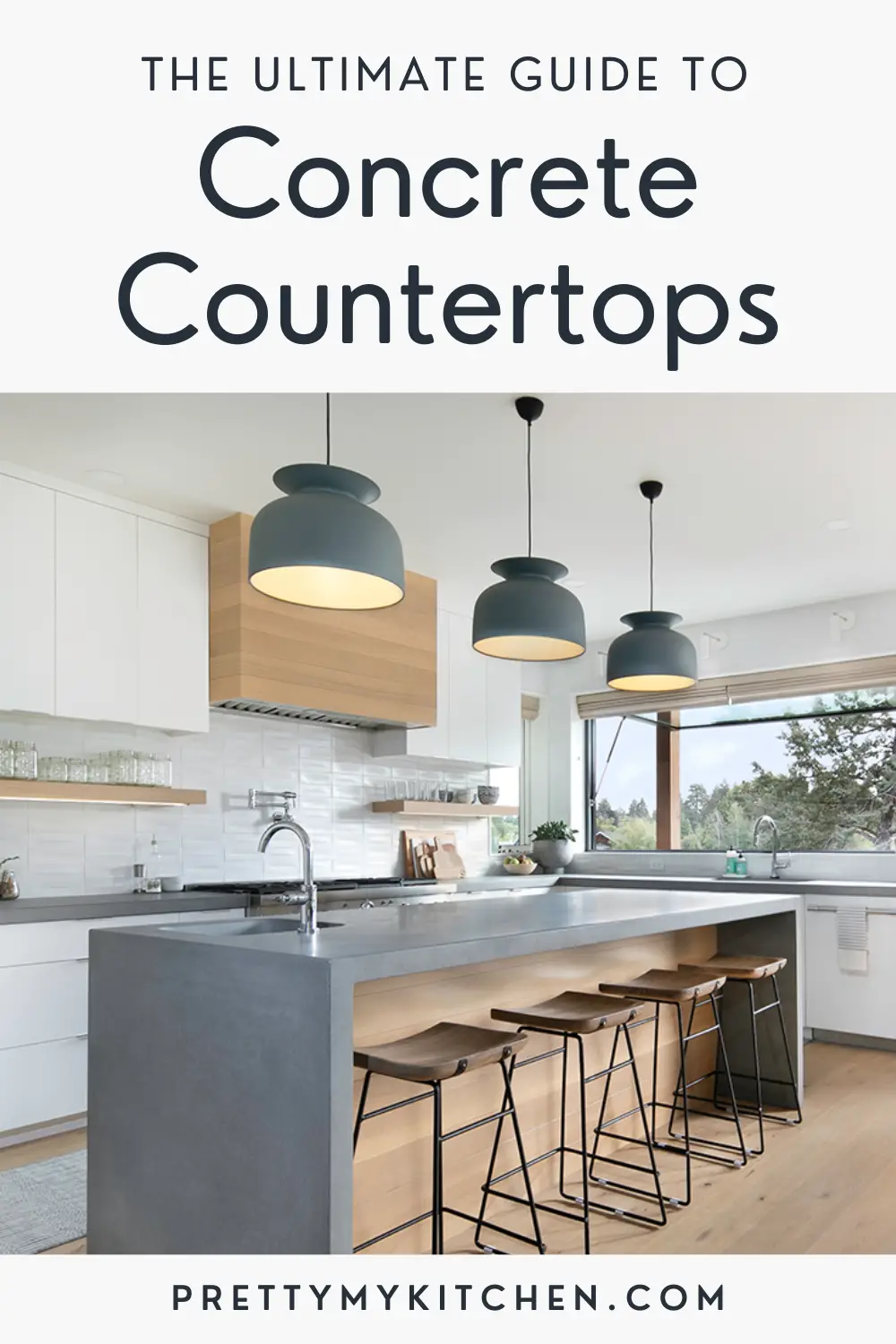
What are concrete countertops?
Concrete countertops are counters made of concrete, crazy right! Although they can be made off-site, they are often poured, framed, and designed in the kitchen.
Among other benefits, a concrete countertop is accessible, budget-friendly, and functional for DIY homeowners. As a result, they are a popular choice for users looking to give their kitchens an affordable facelift without compromising durability and style.
Pros and cons of concrete countertops
If you are undecided about using concrete countertops for your kitchen remodel, understanding their pros and cons will help. Here are the advantages and disadvantages of concrete countertops for kitchens.
Pros
- Customization: Personalizing concrete for counters is a major upside. You can choose any color, shape, and add-ons to create a countertop that matches your style and kitchen’s aesthetics. For example, you can add fancy glass, stone, and other embellishments to create the look you want. Whether you have a traditional kitchen, modern or anything in between you’re sure to find a concrete countertop that works for your taste.
- Durability: Every homeowner values durability with their countertops, and this is precisely what concrete countertops offer. Concrete is solid and not easily chipped, making it highly durable for lasting use. Although they may develop cracks after a long time, these cracks do not affect their strength. In addition, you can reduce their chances of cracks by reinforcing them with glass fibers, enabling them to last even longer.
- DIY-and budget friendly: Concrete for counters is very accessible. Also, since many design options are available, homeowners have fun creating their countertops for their unique style. Finally, going DIY with your concrete countertops saves labor and material costs.
Cons
- Stains: Concrete is porous. So concrete countertops are susceptible to stains. Without adequate maintenance, these stains affect the general appearance of your countertops. Also, the spills a concrete countertop absorbs may lead to bacteria growth. So, it’s vital to adopt regular maintenance practices to prevent stains.
- Chipping: Concrete countertops may chip and crack over time. Again, you can strengthen them with glass fibers to mitigate chips. In addition, careful use and proper maintenance practices prevent cracks and keep your concrete countertop in perfect condition long-term.
- Slow turnaround: Concrete countertops require time to design and dry. So, it may take a few days to use your concrete countertop after installation.
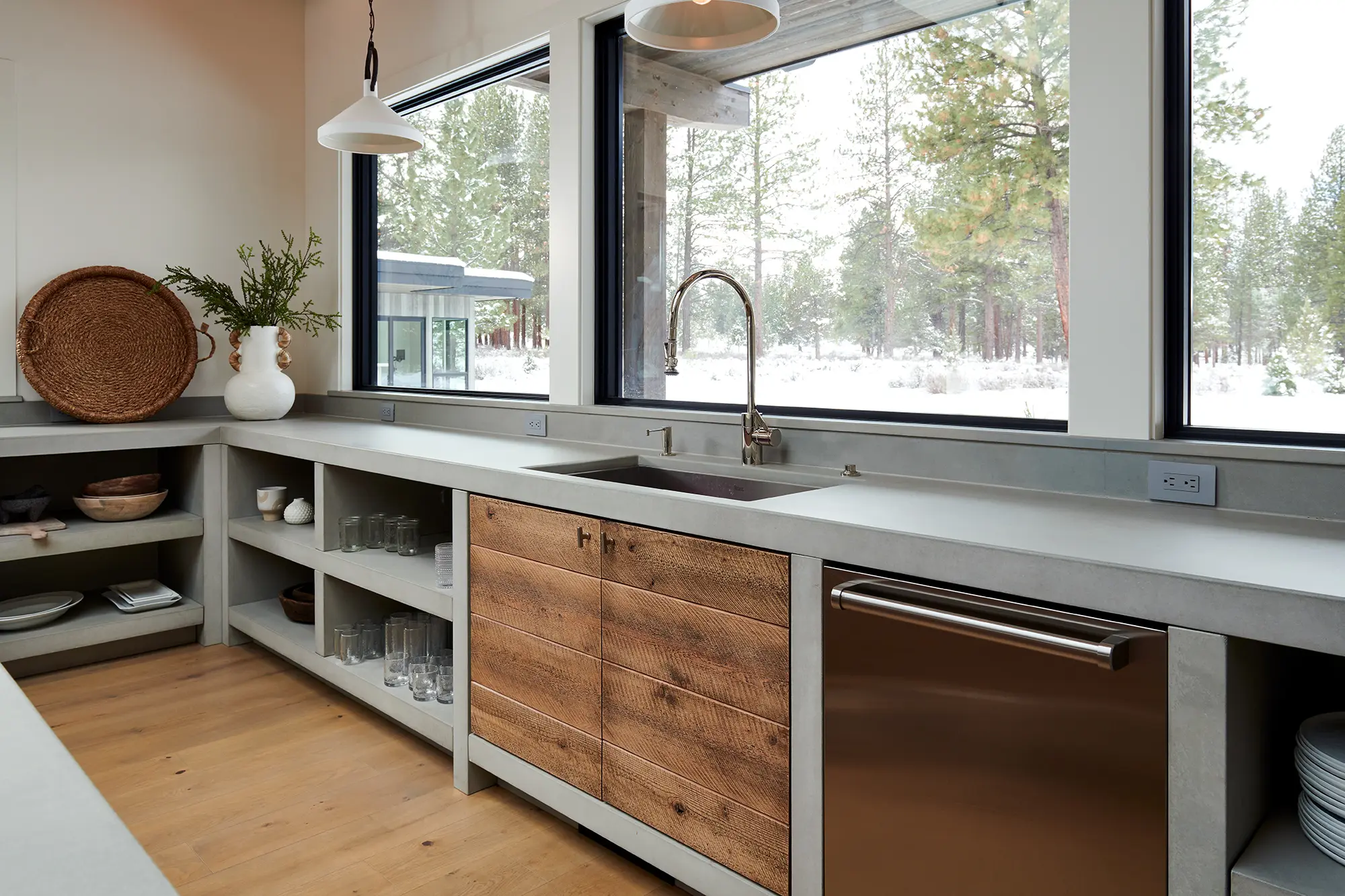
How much do concrete countertops cost?
The average cost of concrete countertops for kitchens is between $65 to $135 per square foot, with installation and materials included. However, concrete for counters prices vary based on the design, materials, and construction type.
For example, concrete countertops with basic designs and non-custom colors cost between $65 to $100 per square foot. In addition, mid-range concrete countertops with custom decoration and finishing range from $100 to $135 per square foot. Finally, high-end concrete for counters with custom colors, edges, and thickness cost $135 and above. However, you can save considerably on installation with a DIY method.
Concrete countertop options
Concrete countertops for kitchens are made from scratch, so homeowners can select various finishes and colors during installation. Marbleized or vein finish, wood-grain finish, hand-troweled finish, and polished or sanded finish are some of the concrete countertop finishes available.
In addition, you can apply different colors when designing concrete for countertops. From all shades of gray to blue, red, and white, there are tons of colors to create with concrete countertops.
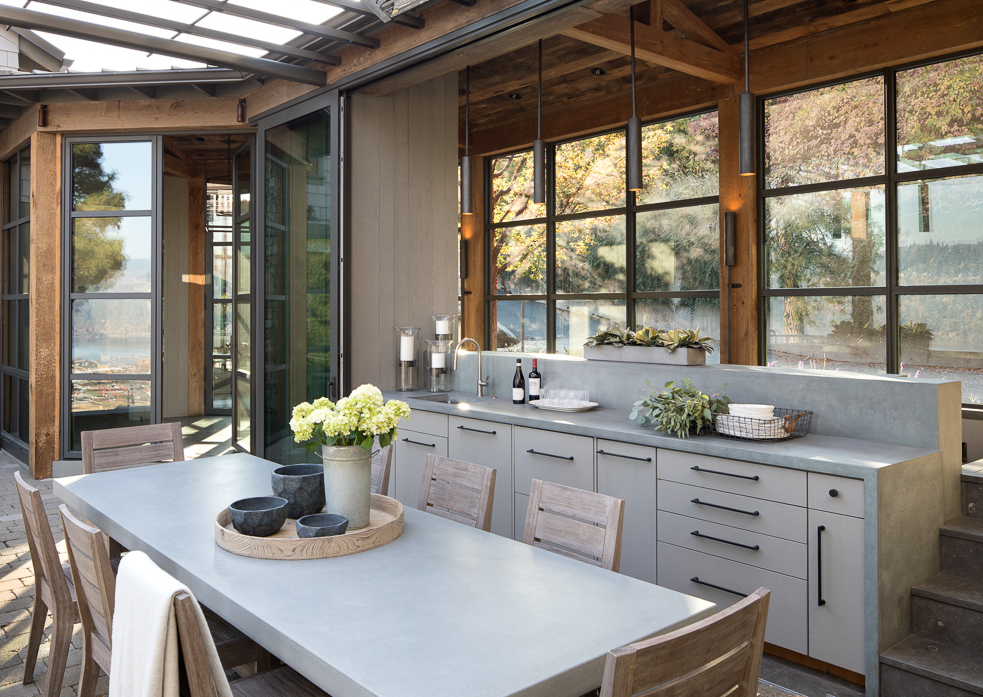
How to install concrete countertops?
Installing concrete countertops is a painstaking process that requires following certain steps, but if you’re up for the challenge they are fairly simple to install.
Here is a step-by-step guide:
- Step 1: Build the form
Melamine-coated particle boards are best for creating countertop forms. They are accessible, affordable and prevent concrete from sticking to them. So use melamine-coated particle boards to build the structure and remove them when the concrete has formed.
- Step 2: Create a sink cut out
If you want your concrete kitchen to have a sink, make a sink cut-out when building the form.
- Step 3: Reinforce the form
Add reinforcement with steel mesh. Suspend the steel mesh in the middle of your melamine form for the best results.
- Step 4: Mix the concrete
Follow the manufacturer’s instructions to mix your countertop. You can use a small, motorized mixer to mix your concrete. Aim for a soft but not runny consistency.
- Step 5: Pour the concrete
Pour concrete into the form you’ve created and fill it. Work the edges carefully with a hand trowel for a smooth finish. Afterward, tap the sides gently to release excess liquid.
- Step 6: Remove the form
Leave the concrete for a few days to dry. Afterward, remove the melamine frame.
- Step 7: Install your countertops
Use some silicone caulk on the top of the counter to place the concrete slab. The countertop base may have a plywood top to support the countertop when placing it. After installing your countertop, check for holes and cracks and fill them. Allow the countertop to dry, then apply a concrete sealer. Sealers prevent stains and spills from penetrating into concrete countertops for kitchens.
If you’d like more information, check out this DIY concrete countertop guide!

Plan your kitchen countertop remodel with Pretty My Kitchen Remodel Planner!
While concrete countertops may not be for every home, they are an excellent choice for many, especially for those who want customization. You can design your countertop from the start, so you can choose the thickness, color, finishes, and design that works for you and your space.
As with any design element in your kitchen remodel, you need to be aware of rising costs and know your budget well before you start. From materials to design, construction, and style, Pretty My Kitchen Remodel Budget Planner helps you plan your spending effectively. This way, you can stick to your budget and avoid unplanned expenses. Get your Kitchen Remodel Planner now to get started.

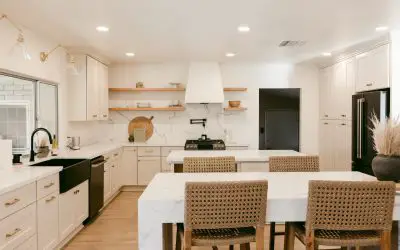
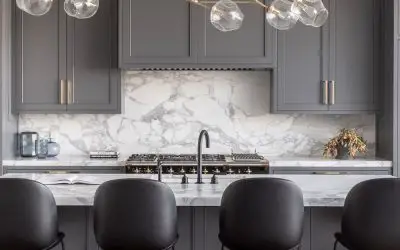
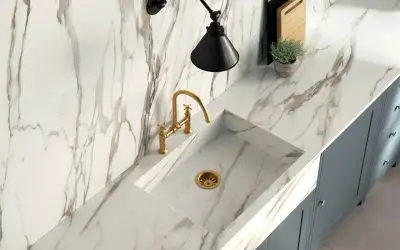
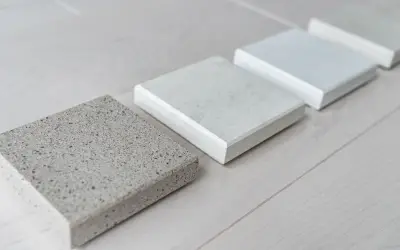

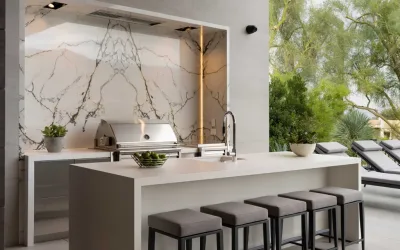

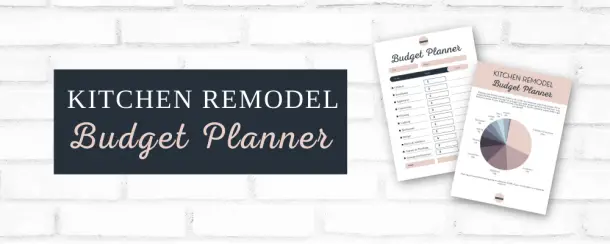

0 Comments